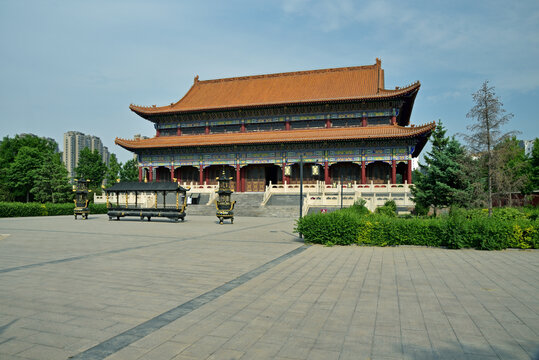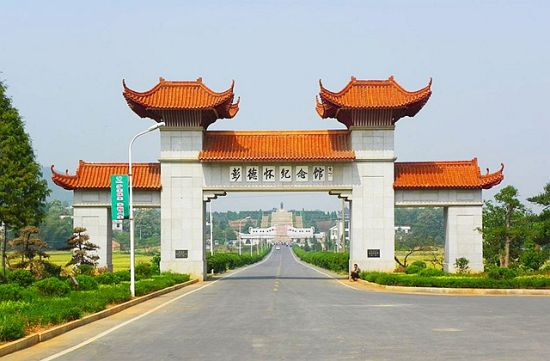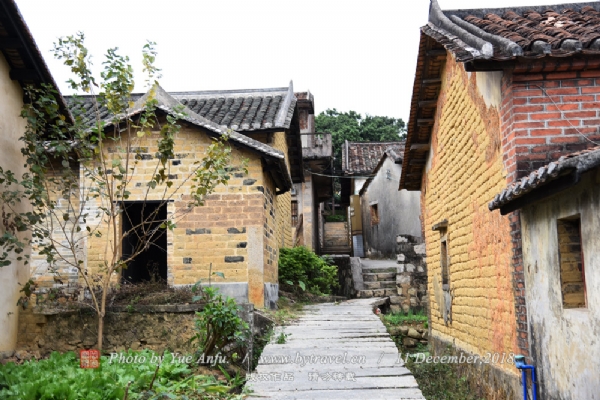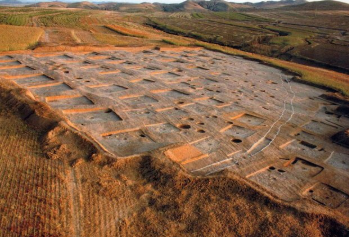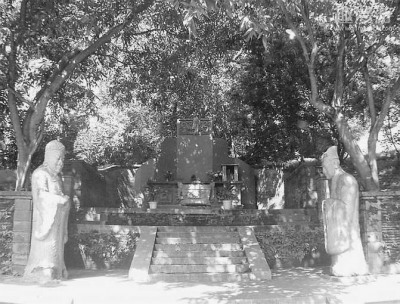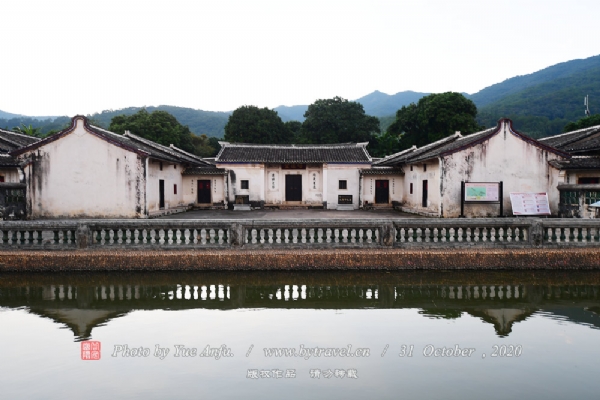Experience Tranquility at Bozhou Yuchisi Yizhi: Your Next Travel Destination in Anhui
An Essential Guide to Visiting Bozhou Yuchisi Yizhi
In This Guide
- An Essential Guide to Visiting Bozhou Yuchisi Yizhi
- The Rich History of Bozhou Yuchisi Yizhi
- Main Highlights: What to See at Bozhou Yuchisi Yizhi
- Planning Your Visit: A Practical Guide
- Tickets, Hours, and Booking
- How to Get There
- Local Cuisine and Accommodation
- Frequently Asked Questions
- Final Thoughts on Your Trip
Nestled in the heart of Anhui Province, just a stone’s throw from the bustling town of Mengcheng, lies the remarkable Bozhou Yuchisi Yizhi, or Yuchisi Site. This ancient relic is not merely a destination; it is a portal to an era long past, offering a glimpse into the lives of our Neolithic ancestors who thrived in this fertile region nearly 5,000 years ago.
Discovered in 1989, the Yuchisi Site has been the subject of extensive archaeological exploration, revealing a wealth of artifacts and structures that illuminate the complexities of prehistoric life. Over the course of 13 excavation campaigns, archaeologists have unearthed an astonishing array of findings, including the remains of 78 houses, over 300 burial sites, and countless ceremonial pits. The site showcases the architectural ingenuity of its early inhabitants, featuring the largest and most well-preserved Neolithic structures ever found in China—distinctive red clay buildings that evoke the image of community and resilience.
Legend has it that the site derives its name from a temple built in honor of the Tang Dynasty general Yuchi Jingde, who is said to have once stationed his troops here. Today, however, it serves a more profound purpose as a crucial archaeological site that fills significant gaps in our understanding of ancient Chinese civilization. The artifacts discovered at Yuchisi, ranging from stone tools to pottery and bone implements, provide invaluable insights into the daily lives, rituals, and social structures of the period.
Visitors to Yuchisi are not just stepping onto a piece of land; they are walking through history, tracing the footsteps of those who lived, loved, and built a community in this vibrant landscape. Whether you are a history enthusiast, an archaeology aficionado, or simply a curious traveler, the Yuchisi Site promises a captivating journey into the depths of ancient human experience. Embrace the allure of this archaeological treasure and discover the stories that shaped the roots of Chinese civilization.
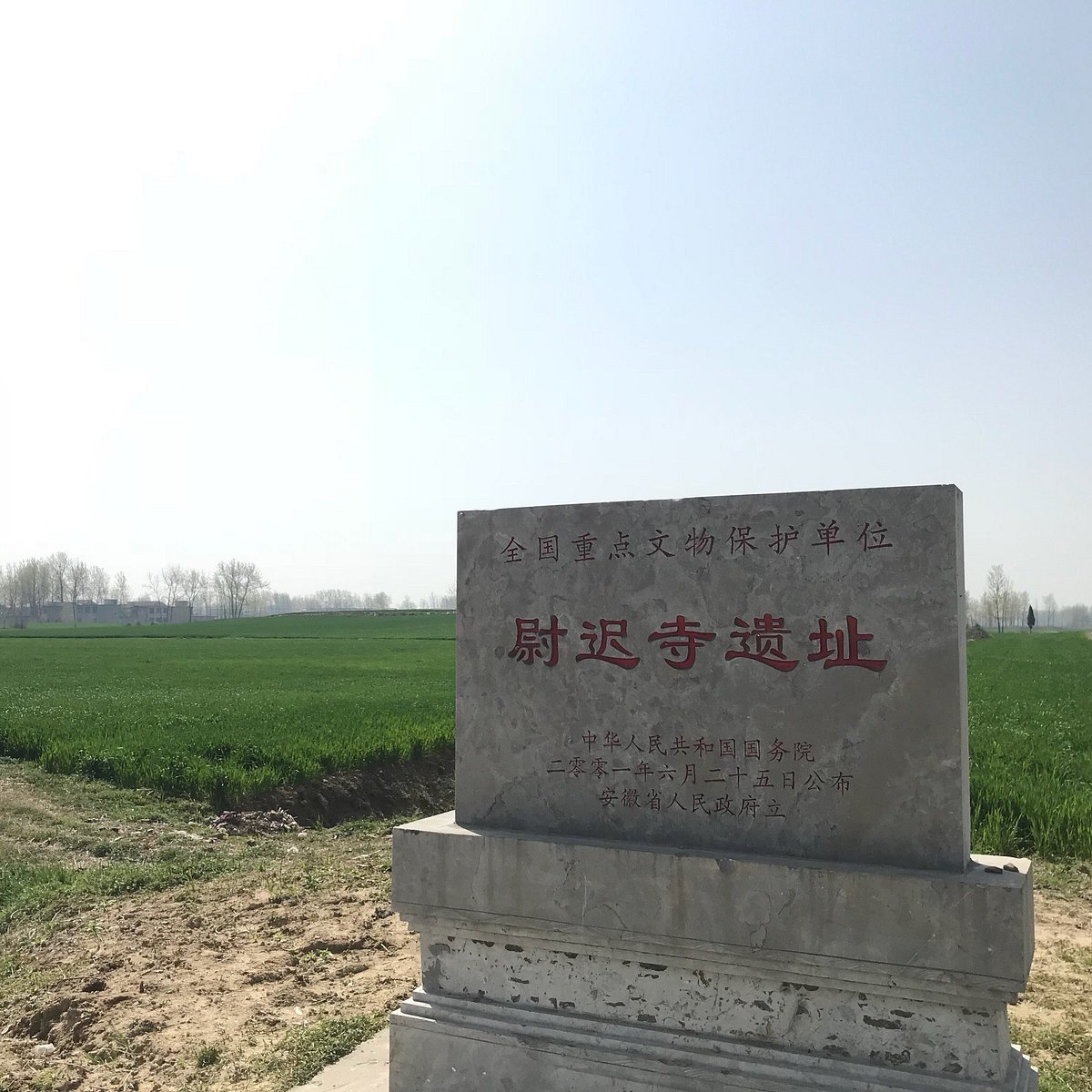
Bozhou Yuchisi Yizhi.
The Rich History of Bozhou Yuchisi Yizhi
The Bozhou Yuchisi Yizhi, located in the Xutuan Town of Mengcheng County, Anhui Province, is a significant archaeological site that dates back approximately 5,000 years, marking it as one of the most important remnants of early human civilization in China. The site, discovered in 1989, is believed to be a relic of the late Neolithic period, specifically associated with the Dawenkou culture, which played a crucial role in the development of early Chinese society.
The name “Yuchisi” is derived from a local legend that commemorates the Tang Dynasty general Wei Chi Gongde, who supposedly stationed troops nearby, leading to the establishment of a temple in his honor. Although the temple itself no longer exists, its historical significance persists through the archaeological findings uncovered at the site.
The archaeological endeavors at Yuchisi have been extensive, with the research team from the Chinese Academy of Social Sciences conducting 13 excavations from 1989 onward. These investigations have revealed an astonishing array of artifacts and structures. Within a scope of about 10,000 square meters, archaeologists have unearthed the foundations of 78 houses, over 300 tombs, and numerous pits used for storage and ritual purposes. The artifacts recovered—including pottery, stone tools, and bone implements—total nearly 10,000 pieces, providing invaluable insights into the lifestyle, culture, and social organization of the inhabitants during that time.
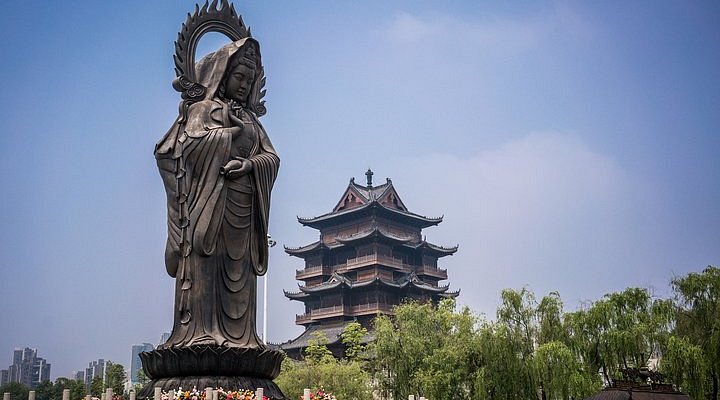
Bozhou Yuchisi Yizhi.
Notably, the site features a distinct topographical formation, characterized by low-lying areas surrounding a central elevated region. The red earthen structures found at Yuchisi represent the most complete and diverse examples of prehistoric architecture discovered in China to date, stretching approximately 370 meters in length and 250 meters in width. The living quarters, constructed from baked earth, exhibit sophistication in design, indicating that the residents possessed advanced building techniques and a complex social structure.
Yuchisi is also significant for its contributions to understanding the geographical spread of Neolithic cultures in China. It is strategically positioned at the crossroads of several ancient cultural realms, including Dawenkou, Liangzhu, Qijia, and Yangshao cultures. This intersection highlights the site’s role as a melting pot of cultural exchange, which is further evidenced by the diversity of artifacts uncovered.
In recognition of its historical and cultural importance, the Yuchisi site was designated a national key cultural relic protection unit in July 2001. The discoveries at Yuchisi not only enrich our understanding of ancient Chinese civilization but also serve as a testament to the ingenuity and adaptability of early human societies in their quest for survival and community building. Today, it stands as a vital part of China’s archaeological heritage, attracting scholars and tourists alike, eager to explore the roots of one of the world’s oldest civilizations.
Main Highlights: What to See at Bozhou Yuchisi Yizhi
Nestled in the heart of Anhui province, the Bozhou Yuchisi Yizhi, or Yuchisi Ruins, presents a fascinating glimpse into ancient human civilization, dating back approximately 5,000 years. This archaeological site is located just 150 meters east of the village of Bijicun in Xutian Town, Mengcheng County. The site is significant not only for its age but also for the wealth of artifacts uncovered during extensive excavations carried out since 1989.
The Yuchisi Ruins are renowned for their remarkably well-preserved Neolithic structures, including a series of red earthen buildings that represent some of the most complete prehistoric architectural remains found in China. Stretching approximately 370 meters from east to west and 250 meters from north to south, the site covers an impressive area of around 100,000 square meters. Archaeologists have unearthed 78 houses, over 300 tombs, and numerous pits that served various purposes, including burial and ritual activities.
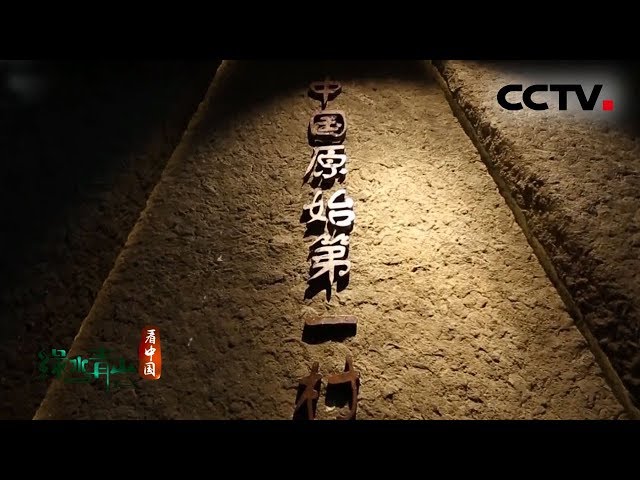
Bozhou Yuchisi Yizhi.
Among the most striking discoveries are the artifacts, which include nearly 10,000 pieces of pottery, stone tools, bone implements, and shell artifacts. These items are invaluable for understanding the social, cultural, and economic practices of the region’s early inhabitants. The Yuchisi Ruins are often compared to a treasure trove of historical data, providing critical insights into the late Neolithic period in North Anhui.
Legends surrounding the site suggest that it was named after the Tang Dynasty general Wei Chi Jing De, who is said to have garrisoned his troops here, thus giving rise to the name “Yuchisi.” The site’s unique topography, characterized by a raised central area surrounded by lower ground, adds to its historical allure.
In recognition of its significance, the Yuchisi Ruins were designated a National Key Cultural Relic Protection Unit in 2001. This acknowledgment highlights the site’s role in shedding light on the broader narrative of Chinese civilization and its development over millennia.
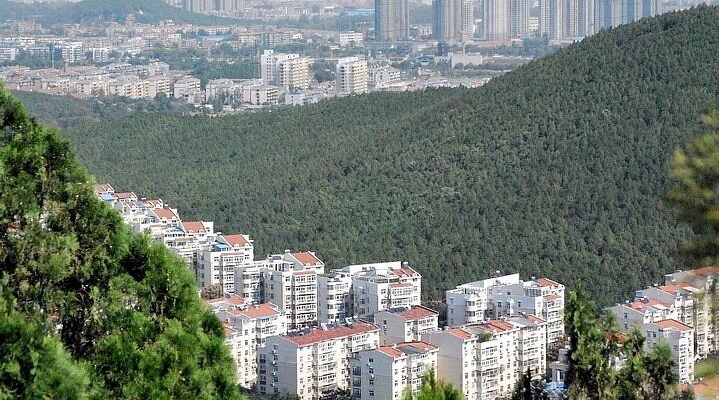
Bozhou Yuchisi Yizhi.
Visitors to the Yuchisi Ruins can immerse themselves in the rich tapestry of history, exploring a place where ancient communities thrived and laid the foundations for future generations. As an archaeological gem in the heart of China, Yuchisi stands as a testament to human ingenuity and resilience, making it a must-visit destination for history enthusiasts and curious travelers alike.
Planning Your Visit: A Practical Guide
Practical Guide to Visiting Bozhou Yuchisi Yizhi (尉迟寺遗址)
If you’re planning to explore the ancient Bozhou Yuchisi Yizhi, or Yuchisi Ruins, here’s everything you need to know for a smooth and enriching visit to this significant archaeological site.
Location and Access
The Yuchisi Ruins are located approximately 150 meters east of Bijicun village in Xutuan Town, Mengcheng County, Anhui Province. The site is easily accessible by car, making it ideal for day trips from nearby cities. Public transport options are limited, so renting a car or taking a taxi is recommended.
Visiting Hours
The site is open year-round, typically from 9:00 AM to 5:00 PM. However, it is always wise to check ahead for any changes in operating hours or special closures, especially around holidays or local events.
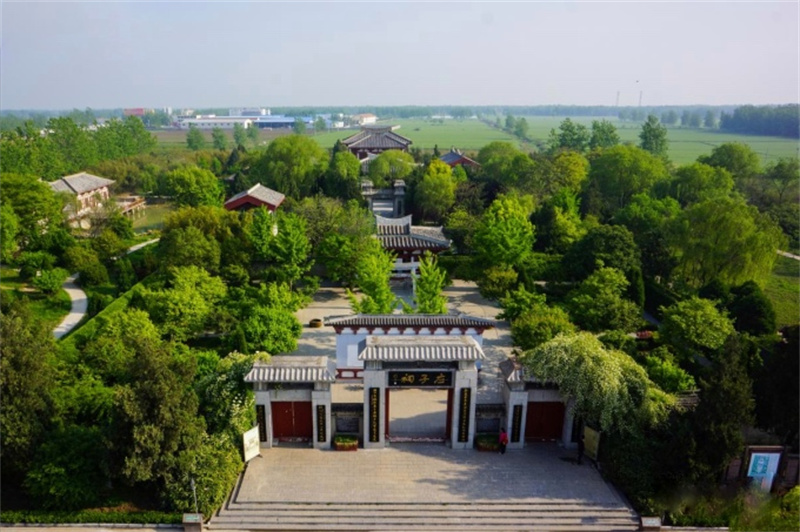
Bozhou Yuchisi Yizhi.
Admission Fees
Currently, there is no entrance fee to visit the Yuchisi Ruins, which is a great perk for budget-conscious travelers. Donations to support the maintenance of the site are appreciated, though not mandatory.
What to Expect
Yuchisi Ruins date back approximately 5,000 years and are among the most significant remnants of the Late Neolithic period in China. This site features:
-
Extensive Archaeological Findings: Over 78 house foundations, more than 300 tombs, and numerous ceremonial pits have been uncovered, providing invaluable insight into the lives of prehistoric communities.
-
Unique Architecture: The site includes well-preserved rammed earth structures, which are among the most complete prehistoric buildings discovered in China.
-
Cultural Artifacts: A vast array of artifacts, including pottery, stone tools, and bone implements, have been excavated, illustrating the technological advancements and daily life of the inhabitants.
Guided Tours
Consider joining a guided tour to gain deeper insights into the site’s history and significance. Local guides are knowledgeable and can enhance your understanding of the archaeological discoveries and their context within Chinese civilization. Check local tourism offices or online platforms for tour availability.
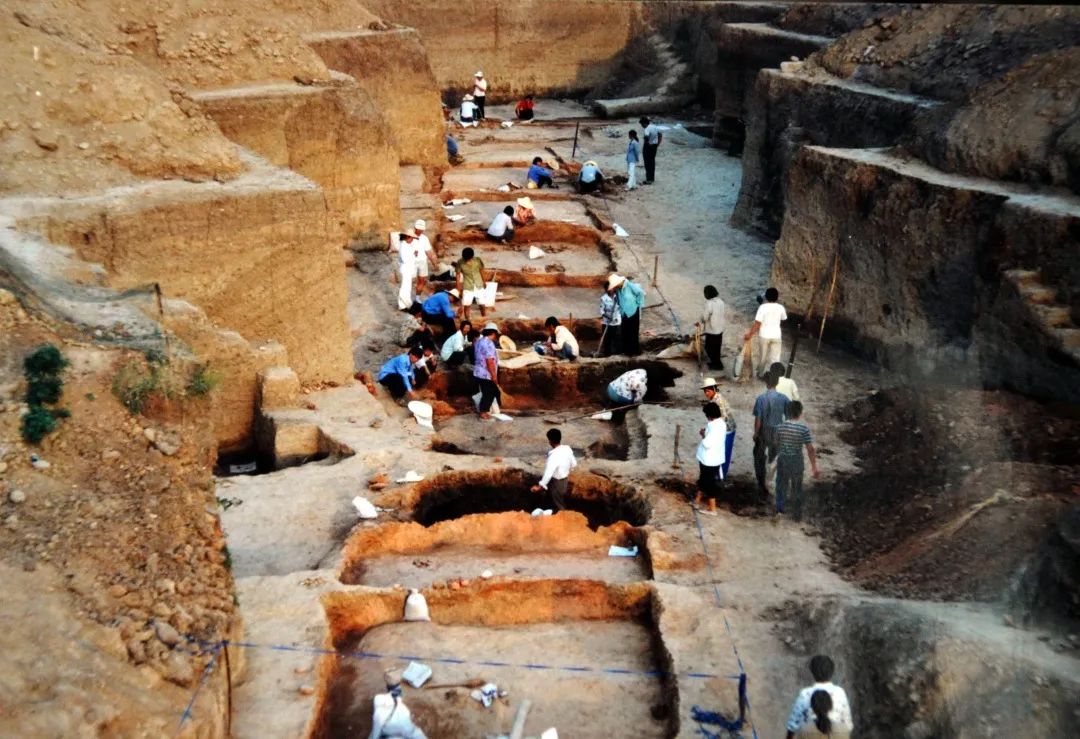
Bozhou Yuchisi Yizhi.
Nearby Attractions
While visiting Yuchisi Ruins, you may want to explore other nearby attractions:
– Mengcheng Museum: A short drive away, this museum houses many artifacts from the Yuchisi Ruins and offers further context about the region’s history.
– Historical Landmarks: Other historical sites in Mengcheng County, such as ancient pagodas and temples, provide additional cultural experiences.
Tips for Visitors
- Wear Comfortable Shoes: The site requires some walking over uneven terrain, so comfortable footwear is essential.
- Bring Water and Snacks: There are limited facilities on-site, so it’s wise to carry refreshments.
- Respect the Site: As a protected archaeological area, please follow guidelines to preserve the ruins and artifacts for future generations.
Weather Considerations
The climate in Anhui Province can vary significantly throughout the year. Summer months can be hot and humid, while winters can be chilly. Check the local weather forecast before your visit and dress accordingly for outdoor exploration.
Visiting Yuchisi Ruins is a remarkable opportunity to connect with China’s ancient past. Whether you are a history buff or a casual traveler, the site offers a captivating glimpse into prehistoric human civilization and its cultural richness. Plan your trip today and step back in time at this extraordinary archaeological treasure.
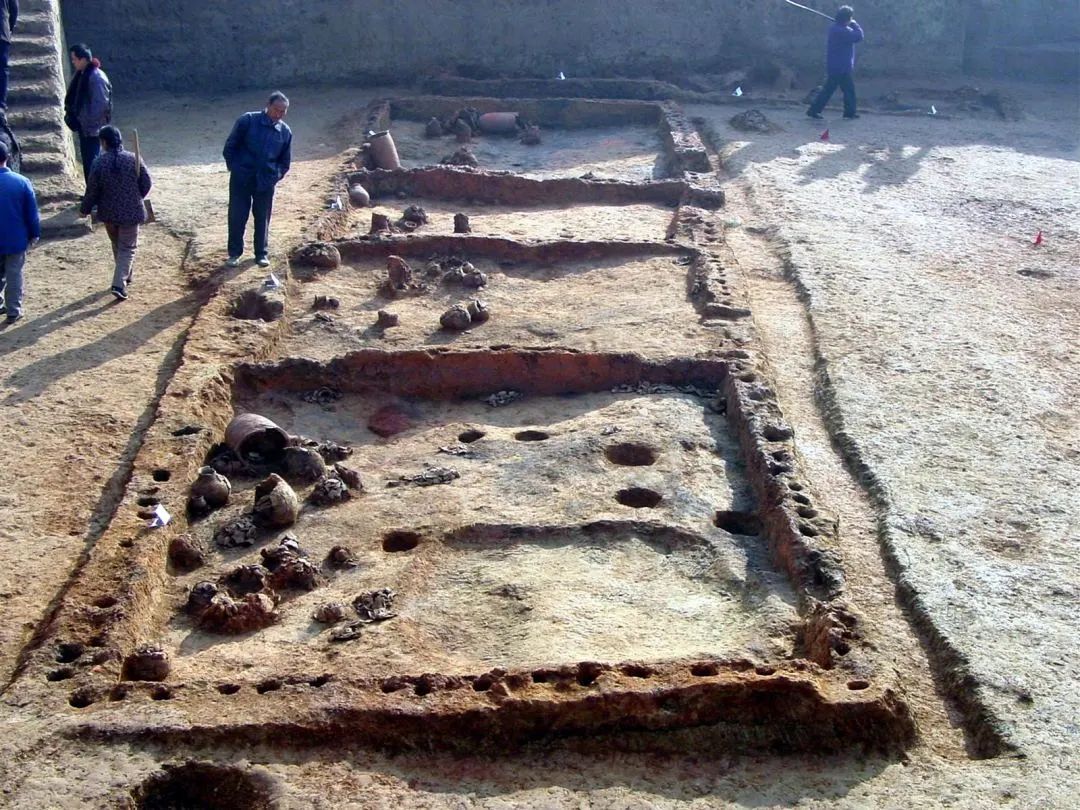
Bozhou Yuchisi Yizhi.
Tickets, Hours, and Booking
Visiting the Bozhou Yuchisi Yizhi (尉迟寺遗址) is an extraordinary experience, allowing you to step back in time to explore one of China’s most significant archaeological sites. Here’s what you need to know about accessing this historical gem.
Ticket Information
Admission Fees:
The Bozhou Yuchisi Yizhi does not charge an entrance fee, making it an accessible destination for all visitors. This encourages both locals and tourists to engage with the rich history and culture of the area without financial barriers.
Opening Hours:
The site is open to the public daily from 9:00 AM to 5:00 PM. Visitors are encouraged to arrive early in the day to make the most of their visit and avoid the midday heat, especially during the summer months.
Location:
The Yuchisi Yizhi is located approximately 150 meters east of Biji Village in Xutuan Town, Mengcheng County, Anhui Province. It’s advisable to use GPS navigation or local maps to find the site easily.
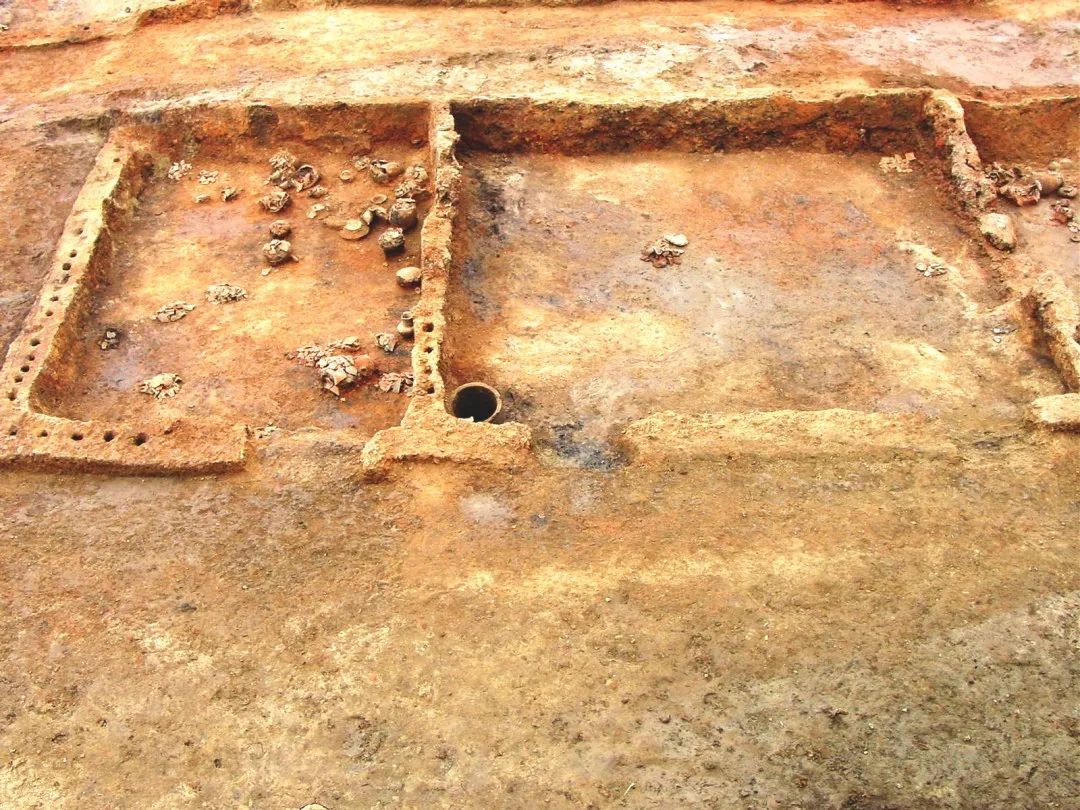
Bozhou Yuchisi Yizhi.
Transportation Recommendations:
While public transportation options may be limited, driving to the site is recommended. The area is well-connected via local roads, and parking is generally available near the entrance. Alternatively, consider hiring a local guide for a more informative experience.
In summary, the Bozhou Yuchisi Yizhi offers free admission, ample visiting hours, and a rich exploration opportunity for anyone interested in ancient Chinese civilization. Enjoy your journey into history as you uncover the secrets of this remarkable archaeological site!
How to Get There
When planning a visit to the Bozhou Yuchisi Yizhi (尉迟寺遗址), also known as the Yuchisi Archaeological Site, getting to this remarkable historical location requires some thoughtful navigation. Situated in the Xutian Town of Mengcheng County, approximately 150 meters east of Bijicun village, this site is about 35 kilometers from the city of Bozhou in Anhui Province. Here’s a comprehensive guide on how to reach the site, ensuring a smooth and enjoyable journey.
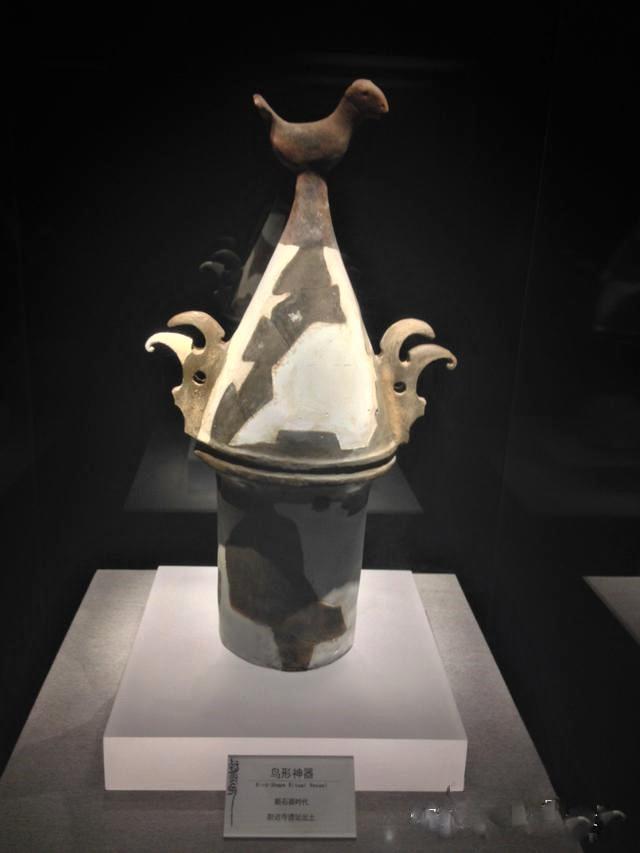
Bozhou Yuchisi Yizhi.
Getting There
By Air
The nearest major airport is the Xuanzhou Xuanzang Airport (XUZ), located roughly 90 kilometers from the archaeological site. From the airport, you can hire a taxi or take a ride-sharing service to reach the site directly. The drive typically takes around 1.5 hours, depending on traffic conditions.
By Train
For those traveling by train, the Bozhou Railway Station is your best bet. This station is well-connected to several major cities in China, making it convenient for travelers. Upon arrival at Bozhou Railway Station:
– Taxi or Ride-hailing: You can easily find taxis or book a ride through apps like Didi Chuxing. The journey from the train station to Yuchisi Yizhi will take about 40-50 minutes.
– Bus Services: Alternatively, local buses may also run towards Mengcheng County, although schedules can be less frequent. It’s advisable to check the latest bus schedules at the station.
By Bus
If you prefer a direct route, long-distance buses are available from several cities in Anhui Province to Mengcheng County. Buses depart from major bus stations, including the Bozhou Long-distance Bus Station. The bus ride typically lasts about an hour. Upon arriving at Mengcheng, you can take a taxi to the archaeological site, which is just a short distance away.
By Car
For those driving, the site is conveniently accessible via the G3 Beijing-Hangzhou Expressway. Here’s a quick route:
1. Head towards the G3 Expressway from your starting point.
2. Take the exit for Mengcheng County and follow the signs to Yuchisi Yizhi.
3. The site is well-marked, and parking is available near the entrance.
Local Transportation
Once at the site, getting around is straightforward:
– Walking: The archaeological site itself is best explored on foot. The paths are well-maintained, allowing for a comfortable visit.
– Guided Tours: Consider joining a guided tour for a more in-depth understanding of the site’s history and significance.
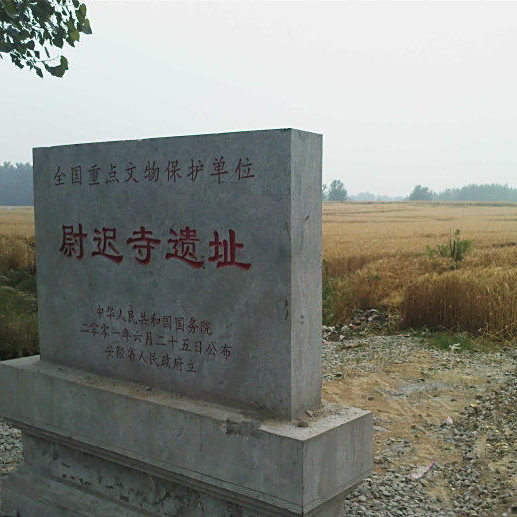
Bozhou Yuchisi Yizhi.
Tips for Travelers
- Plan Ahead: Check the site’s opening hours and any potential visitor restrictions before your trip.
- Language: While Mandarin is the primary language, having a translation app can be helpful, especially in rural areas.
- Cash: Some local transport options may only accept cash, so having some local currency on hand is advisable.
By following this transportation guide, you’ll be well-prepared to explore the fascinating Yuchisi Yizhi and its rich historical offerings, making for a memorable visit to one of China’s most significant archaeological sites.
Local Cuisine and Accommodation
When exploring the ancient wonders of the Bozhou Yuchisi Yizhi (尉迟寺遗址), you’ll want to ensure your culinary and accommodation experiences are as enriching as the historical site itself. Here’s a guide to help you savor the local flavors and find comfortable lodging during your visit.
Culinary Delights
Local Cuisine:
In the vicinity of the Yuchisi Yizhi, you’ll find a variety of eateries that celebrate the rich culinary traditions of Anhui Province. Here are a few dishes you should not miss:
- Steamed Buns (包子): A popular snack, these fluffy buns filled with savory meat or vegetables are perfect for a quick bite before or after your exploration.
- Braised Pork in Soy Sauce (红烧肉): A signature dish of the region, tender pork cooked in a rich soy sauce is a must-try for meat lovers.
- Anhui Cuisine (徽菜): Known for its use of fresh local ingredients and distinctive flavors, be sure to try other local specialties such as bamboo shoots and river fish prepared with traditional techniques.
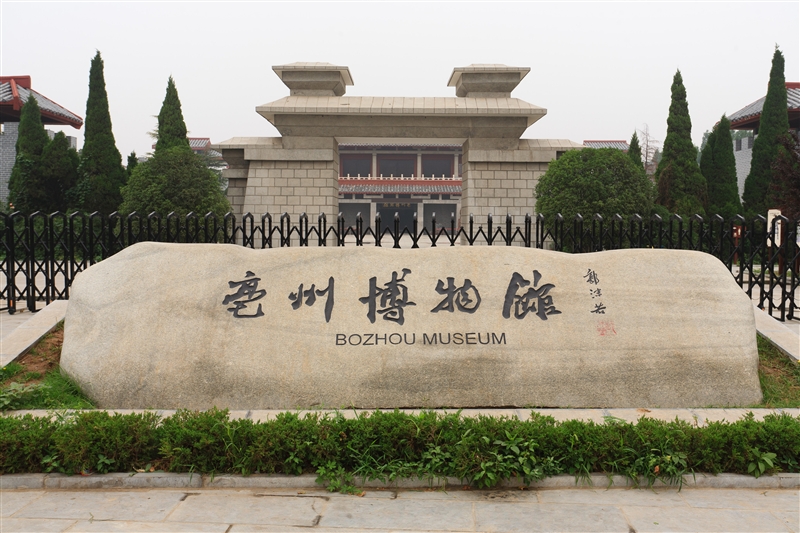
Bozhou Yuchisi Yizhi.
Recommended Restaurants:
– Anhui Flavor Restaurant (徽味餐厅): Located just a short drive from the site, this restaurant offers a menu full of local delicacies with a cozy atmosphere.
– The Old Village Eatery (老村餐馆): Renowned for its authenticity and reasonable prices, this eatery serves traditional dishes that reflect the local culture.
Accommodation Options
After a long day of exploring the archaeological wonders, you’ll want a comfortable place to rest. Here are some lodging options that cater to different preferences and budgets:
-
Yuchisi Hotel (尉迟寺酒店): Situated conveniently near the archaeological site, this hotel offers modern amenities and a chance to enjoy the surrounding natural beauty. Guests praise its clean rooms and friendly staff.
-
Mengcheng Guesthouse (蒙城宾馆): This guesthouse provides a more local experience, featuring simple yet comfortable accommodations. It’s an excellent choice for travelers looking to immerse themselves in the local culture.
-
Luxury Option – Bozhou International Hotel (亳州国际大酒店): For those seeking a more upscale stay, this hotel features elegant rooms, a fitness center, and on-site dining. It’s located a bit farther from the site but offers a luxurious retreat.
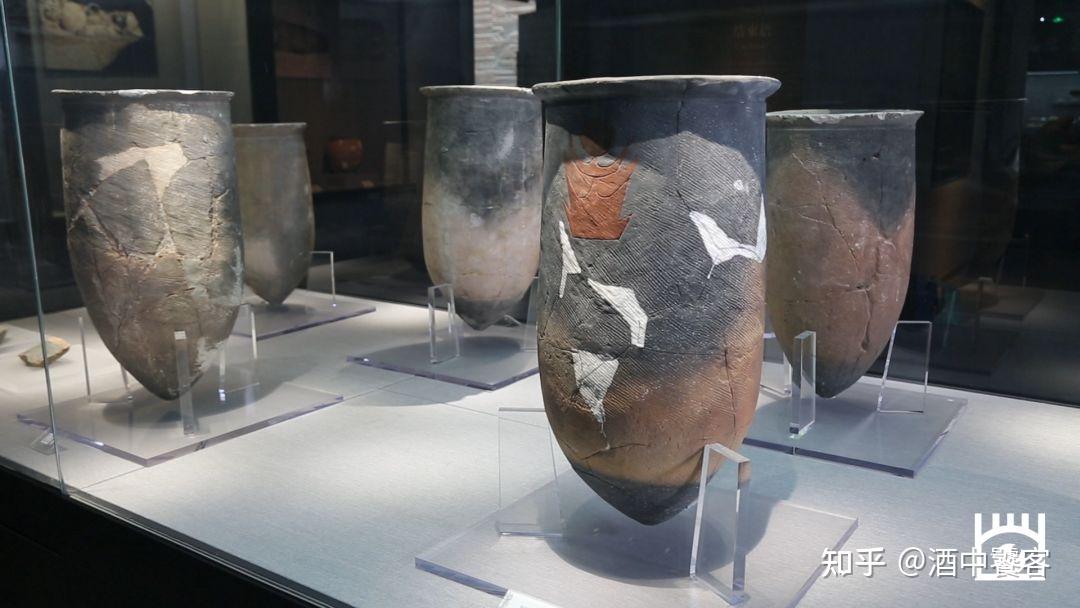
Bozhou Yuchisi Yizhi.
Tips for Your Visit
- Transportation: Renting a car can be a convenient way to explore the area, especially if you want to visit multiple sites in one day.
- Timing: Plan your meals around your visit to the Yuchisi Yizhi to maximize your experience. Consider dining at local restaurants to enjoy authentic Anhui flavors.
By indulging in the local cuisine and choosing the right accommodation, you will enhance your visit to the Bozhou Yuchisi Yizhi, making it a memorable journey through time and culture.
Frequently Asked Questions
-
What is the Bozhou Yuchisi Yizhi (尉迟寺遗址)?
The Bozhou Yuchisi Yizhi, or the Yuchisi Ruins, is an archaeological site located in the town of Xutuan, in Mengcheng County, Anhui Province, China. It is a significant Neolithic site that dates back approximately 5,000 years, offering insights into the early human settlement and cultural practices of the region. -
How can I get to the Yuchisi Ruins?
The Yuchisi Ruins are situated about 150 meters east of Biji Village, Xutuan Town, Mengcheng County. The best way to reach the site is by car. If you are using public transportation, you may need to take a bus or train to a nearby city and then arrange for a taxi or local transport to the site. -
What can I expect to see at the Yuchisi Ruins?
Visitors can explore the remnants of ancient structures, including the well-preserved earthen houses, burial sites, and various artifacts such as pottery, stone tools, and bone implements. The site showcases the architectural and cultural heritage of the late Neolithic period in China. -
Is there an entrance fee to visit the site?
Currently, there is no entrance fee to visit the Yuchisi Ruins, making it an accessible site for history enthusiasts and tourists alike. -
What is the significance of the Yuchisi Ruins?
The Yuchisi Ruins are recognized as one of the most important archaeological discoveries related to the Dawenkou culture. They provide crucial evidence of early human settlement patterns, social organization, and cultural practices during the late Neolithic period in northern Anhui. -
What are the opening hours for the Yuchisi Ruins?
The Yuchisi Ruins are generally open to visitors from 9:00 AM to 5:00 PM, Thursday through Tuesday. However, it is advisable to check in advance for any changes in operational hours, especially during holidays or special events. -
Are there any guided tours available?
While there may not be formal guided tours available at the Yuchisi Ruins, local guides or information centers in nearby towns may offer insights about the site. It’s recommended to prepare by researching beforehand or hiring a local guide to enhance your experience. -
What should I bring when visiting the Yuchisi Ruins?
Visitors should wear comfortable walking shoes and bring a hat or sunscreen, as much of the site is outdoors. Additionally, carrying water and snacks is advisable, as amenities may be limited in the vicinity. Don’t forget your camera to capture the fascinating archaeological findings!
Final Thoughts on Your Trip
Visiting the Yuchisi Yizhi offers a unique glimpse into the distant past of human civilization, showcasing the incredible advancements of a society that flourished over 5,000 years ago. This archaeological site is not just a collection of ancient artifacts; it is a testament to the ingenuity, culture, and community spirit of the people who once inhabited this area.
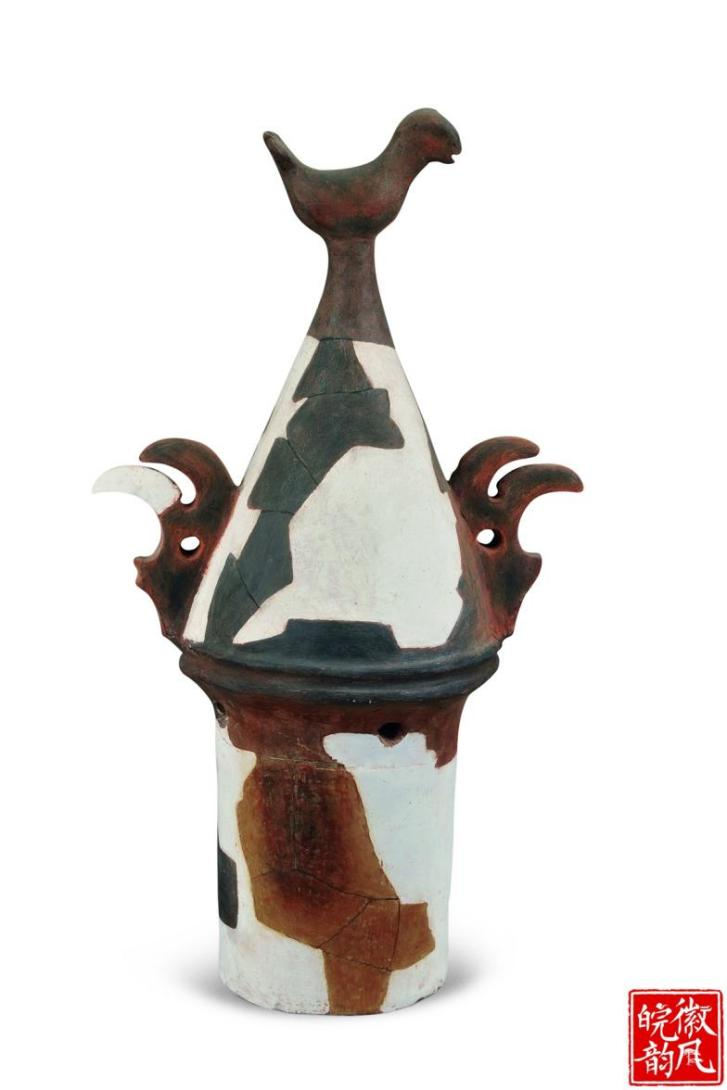
Bozhou Yuchisi Yizhi.
As you walk through the remnants of this prehistoric settlement, you are enveloped in a narrative that transcends time, revealing the daily lives, rituals, and social structures of our ancestors. The meticulously preserved earthen structures and the vast array of unearthed relics—from pottery to tools—paint a vivid picture of life in the late Neolithic era.
Beyond its archaeological significance, Yuchisi Yizhi serves as a reminder of the rich tapestry of human history that continues to influence our present and future. It stands as a cultural beacon, inviting travelers and scholars alike to explore the roots of civilization and reflect on the enduring legacy of those who came before us.
Whether you are a history enthusiast, a casual traveler, or simply seeking a moment of inspiration, the Yuchisi Yizhi is an essential destination that embodies the spirit of discovery and the profound connection between the past and the present. Come, immerse yourself in this remarkable site, and witness firsthand the echoes of a civilization that once thrived in harmony with the land.
